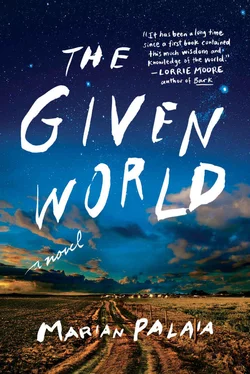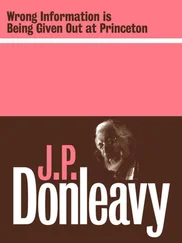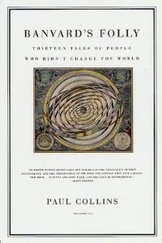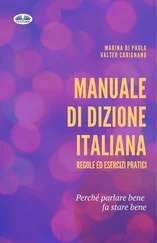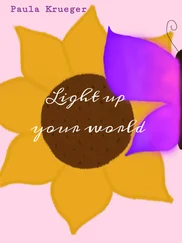But I had. It had not gone anywhere, maybe temporarily into witness protection.
It took several weeks and a serious effort just to go buy a plane ticket, and it killed me that it had been so easy. To leave Vietnam. In one piece. I did not think it should have been that easy.
When it became apparent that I would never do it by myself, Phượng went with me and coaxed me gently into the EVA Air office. “See? No problem.” She put a dainty hand on the small of my back and pushed while I resisted. Phượng is surprisingly strong for a five-foot-tall, ninety-pound girl, and I found myself moving forward, in a swimming-through-tar sort of way, despite my best efforts to stand still or, better yet, back up all the way to and out the door.
“Nice lady help you.” The way Phượng said “help,” it came out sounding like “hey-oop.”
I knew she was making fun of me, however lovingly, because I was acting like an idiot.
“I could do with a little less sarcasm,” I said.
“Yes, dear.” The tiny girl continued steering me toward the nice lady in question, whose smile I knew was almost certainly genuine, but to me she looked remarkably like a crocodile. Or a “coco-deal,” as Phượng would say.
“Maybe we should come back later. Isn’t it lunchtime or something?”
Phượng stopped and gave me a look. “Don’t want to go back? Don’t go.”
“I have to.”
“Tại sao?”
“ Tại vì. ” I knew how childish it was to answer a Why with a Because, but at that moment, I did not care.
Phượng called me on it. “Lousy reason.”
“It’s all I’ve got,” I said. But it wasn’t.
Aside from the beers and the cigarettes and the suicidal, helmetless motorcycle excursions with Luc up Highway 1 toward Phan Thiết or through the rice paddies west of town over slick wooden and rail-less bridges, there was that guy and his dog, so sweet and so safe, refuge; in a place I might get to go, to pull back and start — what do you call it? — living .
I called again. He answered anyway. He was still alone. Or he was alone again. This time I tried to explain what had happened to me, or to us, or hadn’t, or… He said, “Yeah, babe, come on home,” and I blithely skipped right over the hesitant part — the part where he was lying — because I didn’t recognize it as meaningful, because it was something I had never heard before.
Love is something I do not, obviously, know how to do, but some recalcitrant tendency keeps driving me to make the attempt. Because sometimes I think what will cure me is to be surrounded, consumed, crushed, forced to feel something besides the all-too-familiar duality of rootless and pointless. Luc was sweet, but he was crazy, and he was going back to Paris. He asked me to go, but I couldn’t learn another language. Words I already knew I would never know.
• • •
After eighteen months, I had finally done what I’d first gone to Vietnam to do: ridden out to Củ Chi on the back of that Russian motorcycle, roamed the tunnels, the command rooms, the underground hospitals, the reencroaching jungle. Tried to figure out which turn Mick must have taken last and how it could possibly be that he hadn’t left me a message. In a Tiger beer bottle. Carved with a sharp stick into a red-mud wall or with a bayonet into a tree.
But there was nothing. It didn’t even feel like a war zone. It felt like a museum, or a theme park. It didn’t feel real enough for anything important to have been lost there. No heart. No mind. No life. No war.
It had a souvenir stand. That killed me. I wanted to kill something back.
I rented an AK-47. Paid for a handful of bullets. Obliterated the target of an American bomber from fifty yards. The tunnel guides were impressed. “America number one,” they said. “American girl số một! ”
After a kiss from Luc, American Girl Number One put the gun down and said so long. Au revoir. Hẹn Gặp Lại. Sixty kilometers. Three hours. Ten shells. Done and done.
But I could still, too easily, avert my gaze and picture him setting up camp somewhere, living off the land. Maybe in Thailand. From where he could send a postcard. At least.
It came to me how tired I was of pretending I could see any distance at all. I thought maybe if I could find my way back to a clear image I could start over from there, and tried to figure how far back that would be. It turned out to be as far back as Mick, at eighteen, in a cave in Montana, a piece of quartz etched with a dinosaur-feather imprint, shining in his palm. I saw myself on the roof at home, aiming a plain gray rock, hitting him with it, and blood, but no one died; I saw us both in Missoula, hiking into the hills for another geology lesson. Then much blur, with highlights.
The two or so months after Củ Chi were necessarily (I told myself) but still only semi-blurry, and after finally trading all but my last few hundred bucks for thirty-six hours of airports, airplanes, counterfeit Valium, and three or four tiny bottles of bourbon, I was back in San Francisco, trying somewhat desperately to gain traction on slippery pavement in a very steep city. In addition to being jet-lagged and exhausted, I found that Frank was not there, this time, for me. He was done waiting. He tried to let me back in, but he couldn’t trust me an inch, and what he was waiting for was for me to go. Now. Not once he’d gotten used to having me around again.
When I was three days back, he got home from work and pulled my duffel bag out of the closet. He set it on the bed and unzipped it. He said, “I hope you find what you’re looking for, Riley. I really do. But you need to leave me alone for a while.” I started to pack. I took my time. I felt like I was drowning, waiting for the ocean floor to show up under my feet. He didn’t help or try to stop me.
He was right to give me the boot, but it still hurt, a lot. I didn’t ask him how long a while was but decided all by myself to believe that if I really needed him to, someday he’d let me back in. I don’t know why I thought I had to believe this about him. Us. Whatever we were. But I did. It helped a little. Enough to operate.
I had never told him why I went away so far and stayed gone so long. To do that would have required words, turned to sentences, I had no clue how to string together. And something told me it wouldn’t matter anyway. I was never meant to be Frank’s replacement ballerina, but no one can tell me I didn’t try.
Tried for the first time ever to say I was sorry for being so utterly useless when Lucas died. He told me not to worry about it.
“Honey child, it was the eighties,” he said. “No one was right.” I knew it still hurt him, ten years down the line, and that his studied nonchalance, about love, men, sex, friendship — anything ever meant to be serious — was a front, and one that might never come down. But he took me in, and he made me laugh. I began looking at ads in the paper for a place to settle. Regroup. Sleep. And if the dreams were going to be sad, or scary, quit dreaming them.
• • •
Since using telephones in Saigon had run five dollars a minute, I’d braved them only a few times, and they still unnerved me. When I call the number in the ad, though, the welcoming, soft southern accent on the other end of the line gives me the courage to speak. I manage to say hello and to ask if the room is still available.
“Sure, come on over. Can you make it this morning?”
“Yes.” I leave it at that, and an almost-whispered “Thank you,” so as not to sound too anxious or dazed or unbalanced. His name is Christopher, he says, and he is looking forward to meeting me.
Eddie comes along because he has a car and can give me a ride, but mostly for moral support and as evidence, I tell him, that I am not some sociopathic closet homophobe. When I say the last part, he looks at me so closely and earnestly, I think for a second he might put a hand to my forehead, to check for fever. “You get that you are in San Francisco, right?”
Читать дальше
